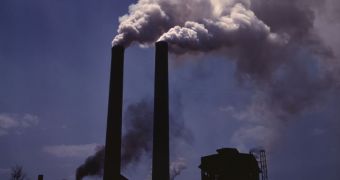The fact that we must stop global warming is visible to everyone who is even marginally sane, but action to remedy the effects we are having on the planet still continues to be avoided. Now, a group of researchers show precisely the course we need to take in order to avoid disaster.
The global warming that drives climate change is itself driven by the release of greenhouse gases – such as carbon dioxide, methane and nitrous oxide – so reducing these emissions is absolutely critical to ensuring that the world does not warm by more than 2 degrees Celsius.
If this threshold is reached, then the cascade of events that will be set in motion would lead to a self-sustaining deterioration of the global climate. This will result in more floods and droughts, shifting precipitation patterns, oceanic acidification, biodiversity loss and numerous other effects.
If we are to prevent this from happening – while also minimizing the harm we've done so far – we have to reduce GHG emissions by a substantial margin within the next two decades, until we release no such gases at all.
This conclusion belongs to an international panel of experts, which was led by investigators at the University of Exeter, in the United Kingdom. Details of their work appear in the November 20 advanced online issue of the top scientific journal Nature Climate Change.
Researchers say that the 2-degrees-Celsius increase is measured in reference to average global temperatures at the start of the Industrial Revolution. This is when mankind began releasing vast amounts of dangerous gases – primarily CO2 – in the atmosphere.
“When I analized [the study] results, I was surprised to see so few options available to us. We know we need to tackle global warming, but our research really emphasizes the urgency of the situation,” says the lead author of the investigation, UE professor Pierre Friedlingstein.
“The only way for us to achieve a safe future climate will be to reduce emissions by at least three per cent, starting as soon as possible. The longer we leave it, the harder it will be,” he goes on to say.
Emissions rate may have to be cut by at least 90 percent in the next decade, if we are to have any chance of keeping the world in climatic balance. Sadly, this is highly unlikely to happen in our society, where misinformation and alleged conspiracy theories attract people more than the ugly truth.
“The good news is that it's not too late. The interesting news is that we really need to think in the very long-term as well as the near-term,” explains University of Colorado investigator and study coauthor, professor Susan Solomon, quoted by EurekAlert.
“Even a small amount of remaining emissions would eventually mean exceeding the target so we need to ensure that technologies are available to make our world carbon-free in the long run,” she concludes.

 14 DAY TRIAL //
14 DAY TRIAL //